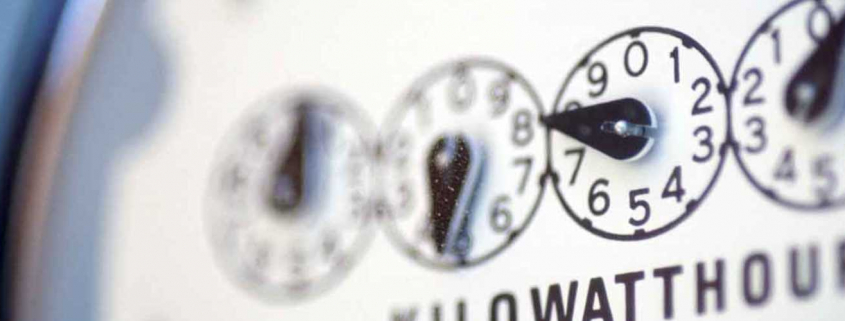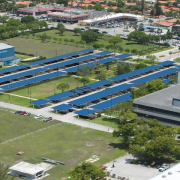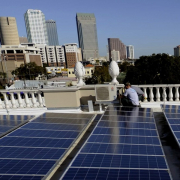A scam in which cons call people asking to collect “debt” for the electric bill has moved Miami-Dade police and Florida Power & Light to issue a warning to the public.
Police say there’s been an increase in the scam calls. Similar cases were reported in 2012, said police spokesman Alvaro Zabaleta. “They’ll call you, they’ll identify themselves as FPL employees and try to collect outstanding debt,” Zabaleta said.
The fraudulent callers claim that the victim’s electrical service will be discontinued unless they purchase a prepaid card for amounts ranging from $150 to $500. The scammers then ask for the account and PINs from those cards.
But it’s not only homeowners falling prey to the swindlers. “Lately they’ve been targeting businesses,” Zabaleta said.
Police are reviewing evidence and talking to witnesses, Zabaleta said, but their main focus is to get the word out about the scam. “We want the community to know. Don’t provide any information,” Zabaleta said.
Utility scammers also are hitting Key West customers. Three Key West businesses have reported being targeted by a telephone scam and one, Blossom’s Grocery, is out $1,300.
Keys Energy Services, the Key West-based electric company, is warning customers of a so-called phone spoofing scam. Spokesman Julio Torrado said customers have received phone calls that show up on caller ID as coming from the power company’s main phone number.
“Customers then hear an automated voice alert … to an electrical emergency within their home and the need for a crew to be dispatched,” the utility said. The automated system attempts to capture personal information that can jeopardize the identity of the resident.
Torrado said the Blossom’s incident happened Feb. 15. Faced with what it believed to be a power cutoff threat, store management paid $1,300, although Torrado said he didn’t know with what or to whom.
Miami Subs and Blackfin, a Duval Street restaurant, were also targeted. Miami Subs employee Sean Wright reported the attempted con to Key West Police Officer Thad Calvert on Feb. 11.
Wright said a caller identifying himself as a Keys Energy employee asked for $3,000 to avoid a service interruption and wanted payment by way of six $500 gift cards. Still on the phone with the apparent scammer, Wright called Keys Energy and was alerted to the issue.
If customers are unsure of the authenticity of a call and need to verify its legitimacy, they should hang up and call Keys Energy at 295-1000.
Keys Energy provides service to around 29,000 customers south of the Seven Mile Bridge. It’s overseen by a five-member elected board created in 1965 by the state Legislature.
FPL also urges customers to call the police if they get a suspicious call. Customer can also call the number at the bottom of their FPL bill and report the call to either the Florida Department of Agriculture and Consumer Services (800-435-7352) or the Financial Fraud Enforcement Task Force (stopfraud.gov).
“FPL will never call and ask for credit card info or take prepaid cards as payment. Also, FPL will never ask for any personal information from you unless you initiate the contact,” said FPL spokeswoman Heather Kirkendall.
Customers wary of whether a call or visit is legitimate, should call the utility for verification.
For further information and safety tips visit www.FPL.com/protect.
Source: Miami Herald










